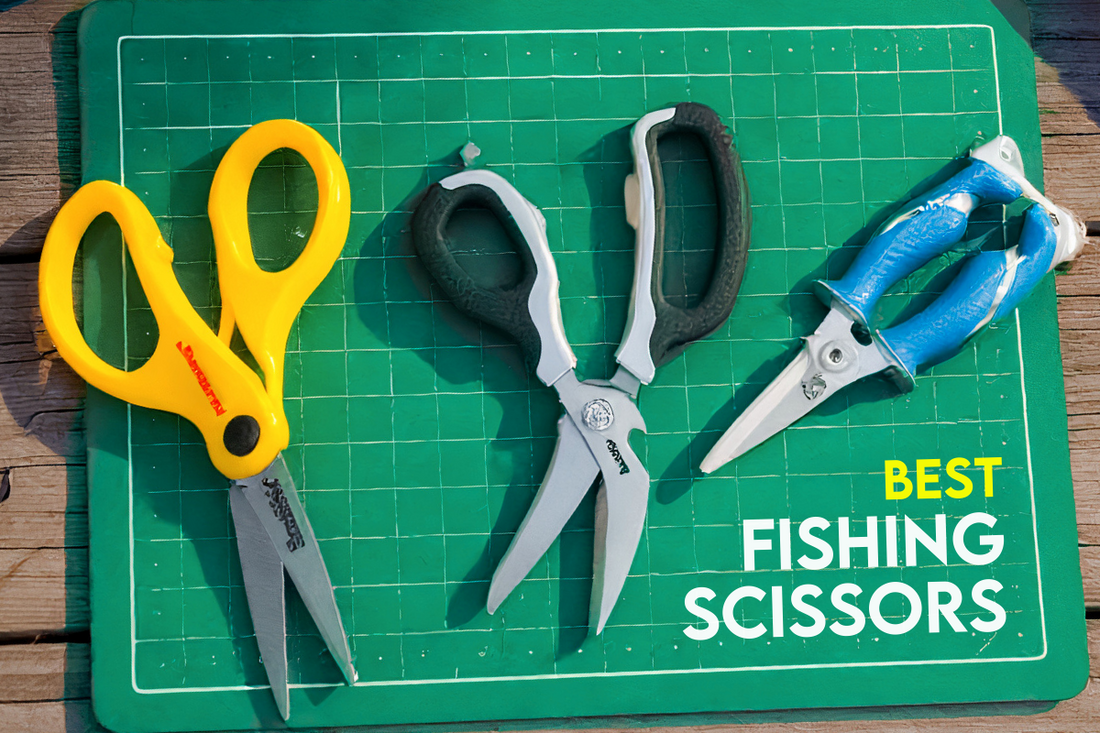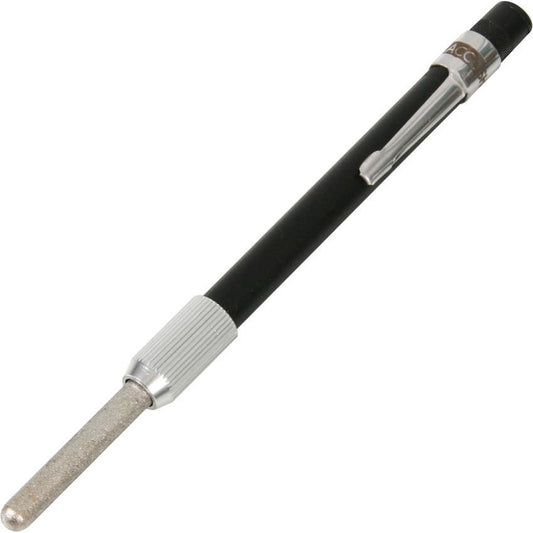
The Complete Guide to Maintaining and Caring for Your Fishing Scissors
Share
Fishing scissors are a crucial tool in any angler's arsenal, yet their maintenance and care are often overlooked. In this comprehensive guide, we will delve into the intricate world of preserving the longevity and performance of your fishing scissors. Expect detailed insights on choosing the right pair, establishing a maintenance routine, troubleshooting common issues, and more.
Embark on this journey with us as we promise to equip you with the knowledge and skills necessary to keep your fishing scissors sharp, clean, and ready for action. By following our expert advice, you can ensure that your fishing scissors remain a reliable companion on every angling adventure.
Why Fishing Scissors are Essential
Fishing scissors are a fundamental tool that every angler should have in their tackle box. These specialized scissors are designed to efficiently cut through various fishing lines, ropes, and even heavier materials such as braided lines. Their sharp and precise blades make them indispensable for any fishing excursion, allowing anglers to quickly and cleanly cut lines without fraying or causing damage.
Furthermore, fishing scissors offer unparalleled convenience on the water. Whether you need to trim excess line from knots, remove unwanted tag ends, or even free a fish from a tangled line, having a reliable pair of fishing scissors at your disposal can save time and frustration during your fishing adventures. In essence, fishing scissors are not just tools - they are essential companions that enhance the overall angling experience and ensure smooth sailing on the water.
Choosing the Right Fishing Scissors

When it comes to selecting the perfect fishing scissors, there are several key factors to consider. Firstly, choose scissors made from high-quality materials such as stainless steel or titanium for durability and corrosion resistance. Look for scissors with serrated edges for cutting braided lines effortlessly and precision cutting of heavy-duty fishing lines. Additionally, consider the size and weight of the scissors – opt for a pair that feels comfortable in your hand and is easy to maneuver.
Another vital aspect to bear in mind is the type of fishing you primarily engage in. For fly fishing, delicate precision scissors with fine tips are ideal, while saltwater anglers may benefit from heavy-duty scissors capable of cutting through tough materials like wire leaders. Lastly, take into account any additional features such as built-in bottle openers or line clippers that could enhance your overall fishing experience.
Establishing a Routine for Maintenance
Consistency is key when it comes to maintaining your fishing scissors. Set aside dedicated time in your routine for the upkeep of your scissors to ensure they remain in top condition. By incorporating maintenance tasks into your regular fishing gear check, you'll develop a habit that will prolong the life of your scissors and enhance their performance.
Consider creating a maintenance schedule based on frequency of use and environmental factors. Whether you fish weekly or monthly, establishing a routine for cleaning, lubricating, and inspecting your scissors will not only keep them sharp and rust-free but also increase their efficiency on the waters. Embrace this maintenance ritual as part of your angling experience, knowing that well-kept tools lead to successful fishing adventures.
Cleaning and Lubricating Your Scissors

Keeping your fishing scissors clean and properly lubricated is essential for maintaining their functionality and longevity. After each use, rinse your scissors with freshwater to remove any saltwater or debris that may have accumulated. Use a mild soap solution to gently clean the blades, making sure to remove any residue or buildup.
Once your scissors are clean, it's crucial to lubricate them to prevent rust and ensure smooth operation. Apply a small amount of oil or silicone-based lubricant to the pivot point of the scissors and work it in by opening and closing the blades several times. This simple step will not only protect your scissors but also make them feel like new every time you use them, enhancing your overall fishing experience.
Sharpening Your Scissors
Keeping your fishing scissors sharp is crucial for precise and efficient cutting. Begin by inspecting the blades for any nicks or dull areas. Use a fine-grit sharpening stone or a specialized scissor sharpener to carefully sharpen the blades. Make gentle, consistent strokes along the cutting edge, ensuring both blades are sharpened evenly.
Remember to test the sharpness by making a few practice cuts on a piece of fishing line or monofilament. The goal is to achieve a clean and effortless cut without fraying or crushing the line. Regularly maintaining sharp scissors not only enhances their performance but also prolongs their lifespan, ensuring you can enjoy seamless cutting during your fishing adventures.
Storing Your Scissors Properly
Proper storage of your fishing scissors is crucial to maintain their sharpness and longevity. To prevent damage, always store your scissors in a dry place away from moisture. Consider investing in a protective case or sheath to keep the blades safe and secure when not in use.
Avoid tossing your fishing scissors into a tackle box where they can get jostled around and potentially dull the blades. Instead, designate a specific compartment or pouch for your scissors to ensure they stay protected and ready for action whenever you hit the water. By storing them properly, you're not just preserving a tool but also showing respect for the craft of fishing.
Safety Tips for Handling Fishing Scissors
When it comes to handling fishing scissors, safety should always be a top priority. Always ensure that the scissors are used for cutting fishing lines only and avoid using them for other purposes to prevent damage or injury. Additionally, make sure to keep the scissors closed and secured when not in use to avoid accidental cuts.
Proper handling of fishing scissors also includes being mindful of their sharp blades. Avoid pointing the scissors towards yourself or others while cutting, and always cut away from your body to prevent any accidents. Lastly, never leave fishing scissors within reach of children or pets, as their sharp blades can cause harm if mishandled.
Troubleshooting Common Issues
Even with proper care, fishing scissors may encounter some common issues that can affect their performance. One common problem is rust formation, which can occur due to exposure to saltwater or improper storage. To address this, use a rust remover solution and a fine steel wool pad to gently scrub the affected areas. Afterwards, dry the scissors thoroughly and apply a light coat of oil to prevent future rusting.
Another issue that anglers may face is stiffness or difficulty in opening and closing the scissors smoothly. This could be caused by debris buildup or lack of lubrication. To remedy this, disassemble the scissors carefully, clean out any dirt or residue using a soft brush or compressed air, then apply a small amount of lubricant to the pivot point before reassembling. Your fishing scissors should now operate like new!
Extending the Lifespan of Your Scissors
Ensuring the longevity of your fishing scissors involves a combination of proper care and thoughtful handling. One effective way to extend their lifespan is by regularly inspecting them for any signs of wear or damage. By catching potential issues early on, you can address them promptly and prevent further deterioration.
Additionally, storing your fishing scissors in a dry, cool place away from direct sunlight and moisture is crucial. Exposure to extreme temperatures or humidity can accelerate rusting and corrosion, leading to a shorter lifespan. By taking these simple yet essential steps, you can enjoy the reliable performance of your fishing scissors for many angling adventures to come.
Conclusion
As we wrap up our comprehensive guide to maintaining and caring for your fishing scissors, it is evident that proper upkeep is key to maximizing their longevity and performance. By investing time and effort into cleaning, lubricating, sharpening, and storing your scissors correctly, you ensure they remain reliable companions on all your fishing escapades. Remember, a well-maintained pair of fishing scissors not only enhances your angling experience but also reflects your commitment to the sport.






